
Uncounted Deaths, Wrongful Detainment — and a Law That Could Change Policing
💡 CEO’s Corner: Justice in the Light Dear Partners in Progress, Lustitia Aequalis has listened to your feedback. We’ve read your social media and newsletter comments- and we take your opinions to heart. We will always prioritize critical conversations and listen to your perspectives. Too often, truth is buried where our communities cannot reach justice. Facts can be hidden in sealed files, broken databases, false reports, and laws that protect corporations instead of people. But hiding the record doesn’t end harm; it spreads. It seeps into our schools, neighborhoods, and institutions. At Lustitia Aequalis, we uncover what power conceals. We collaborate with you to build relationships and tools that ensure evidence survives—and so does justice. This issue explores new laws, lost data, and the quiet revolutions redefining accountability. In this issue, we expose: A new Illinois law, sparked by the killing of Sonya Massey, requiring full disclosure of police misconduct records. The federal government’s ongoing failure to count thousands of deaths in custody, erasing entire patterns of abuse. The wrongful detainment of a disabled teenager in a Los Angeles school zone by Border Patrol. How data brokers sell personal information, fueling stalking, harassment- even targeted killings. This is why we built the Witness App, to put secure, time-stamped evidence directly in your hands. Our rights literacy campaigns are teaching communities precisely what to record, what to say, and what protections you already have. We are making sure the truth survives and can be used for your justice. You are always invited to let us know when you want to inform your community or work with your local officials to ensure everyone’s civil and human rights are protected- and that we can return to our homes and loved ones safely. We’ve also just opened our online store, offering everyday gear designed with protection in mind. From tote bags to hoodies to water bottles, each item supports our mission to equip you to protect your rights everywhere you live, work, and travel. We call it the “Rights and Rhymes” line, and it features a four-line script to use during police encounters. These are real tools for real moments. The powerful four-line rhyme serves as a memorized script to protect your rights during any police encounter. Each line is a verbal shield- asserting your Fifth Amendment right to remain silent, your right to an attorney, and your right to know whether you’re being detained or are free to go. It’s not just a rhyme; it’s a defensive tool to keep you safe, calm, and legally protected. The rhyme is: Why am I stopped? I invoke my Fifth Amendment right. I want my lawyer- no need to fight. I’m not sharing my day; just let me be. Am I detained, or am I free? Because justice in the light isn’t just our mission. It’s our plan. Our futures are shaped by how we plan for these critical moments- in the preventive measures we take. When you press record, we want your evidence to speak for itself in the courtroom, in meetings, and in every moment where life can take an unexpected turn. Together, we can make sure the truths that are ignored, becomes evidence that cannot be erased or hidden. In solidarity, Ashley Martin CEO, Lustitia Aequalis Table of Contents:

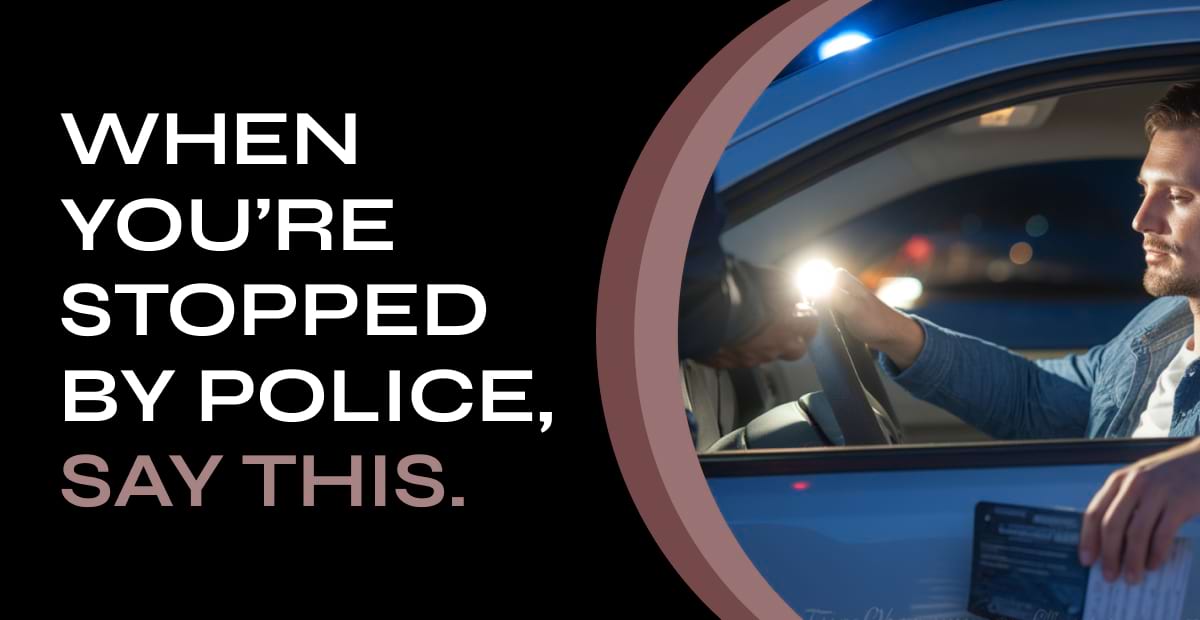
Rights, Records, and Real-Time Proof: What’s at Stake in 2025
CEO’s Corner: Silence Is a System — Why Knowing Your Rights Isn’t Enough Anymore Dear Partners in Progress, A new kind of silence is spreading, not born of fear, but enforced by systems designed to erase truth. Books are banned. Police misconduct is scrubbed from databases. Medical bias is buried in code. And at the center are real people— questioned, ignored, recorded without consent, denied care, or arrested simply for speaking up. At Lustitia Aequalis, we don’t accept this silence as usual. We’re building the tools to challenge it. Because justice only works if people can speak it and prove it. Whether police stop you, deny medical care by an algorithm, or silence you in a classroom, what protects you is not just the law… It’s your ability to use it, clearly and on record. That’s why we’re focused on frontline tools that work in the moment: Scripts that protect you when police approach Recording rights that hold up under pressure The Witness App, which documents abuse and sends footage straight to the cloud Legal campaigns for misconduct transparency and AI accountability Actionable guidance when censorship and bias show up in schools, clinics, or city streets 🛠️ This Is What Frontline Protection Looks Like Our work starts where rights are easiest to ignore: in public spaces, in digital systems, in split-second decisions that follow people for years. You don’t need to argue your worth. You need to be prepared. You need to know the law, and know what to say when it counts. And you need tools that work without permission. That’s what we’re building. That’s who we are. 🔥 Because the Record Is What Stays We’re calling on educators, legal workers, students, caregivers, and community members to join us. Because in a system that hides its history, your footage, your story, and your clarity are the public record. Let’s protect what power tries to erase. In Solidarity, Ashley T. Martin CEO, Lustitia Aequalis Table of Contents: (2).jpg)

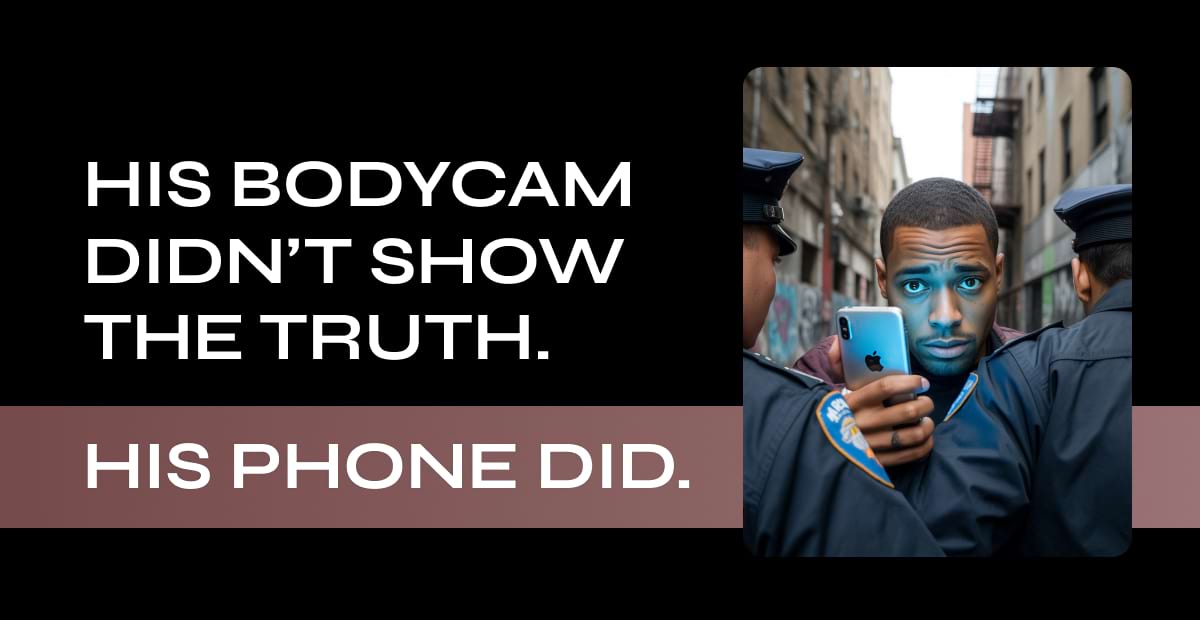
Your Rights at Risk: Protesting, Recording, and Getting Justice
CEO’s Corner: When the System Controls the Evidence – Your Phone Might Be the Only Witness Dear Partners in Progress, What happens when the footage that could prove the truth is withheld, edited, or deleted? This week, we’re looking at what happens when the official record fails, and why real justice depends on having your own. We saw it in Jacksonville, Florida. A young Black student was beaten by police. The bodycams didn’t show it. His dashcam did. We saw it again in Alabama, where the law promised families access to police body-camera footage, but left enough loopholes to keep them in the dark. Across the country, people are still being recorded, silenced, and criminalized with little to no access to the tools that could protect them. 📱 Evidence shouldn’t depend on who holds the badge. That’s why we built the Witness App. It records instantly. It backs up to the cloud. It protects your footage even if your phone is taken or destroyed. It’s not just an app. It’s a shield. 🧾 Records are now public. California’s new misconduct database is a breakthrough. But a tool is only useful if people can act on it. That’s why we’re not just sharing updates, we’re showing people how to search it, cite it, and use it to hold officers and departments accountable. 🚪 Justice includes your front door Tenants in Illinois now have stronger legal protections against retaliation and unlawful entry. But knowing the law is only step one. We’re making sure renters have a way to document abuse the moment it happens, with evidence that stands up in court. As we keep building, we’re also proud to share two milestones: Lustitia Aequalis has earned the Platinum Seal of Transparency from Candid Guidestar—a reflection of our commitment to openness, transparency, and public trust. And we’re honored to welcome Enso as our first international funder. Their early support helps expand our reach and deepen our impact where it's needed most. The system is still protecting itself. That hasn’t changed. But the tools to challenge it are in more hands than ever. We’re here to make sure those tools work. In Solidarity, Ashley T. Martin CEO, Lustitia Aequalis Table of Contents: Brutal Arrest of Black Student in Florida Shows Why Recording Still Saves Lives Police Records Are Now Public – How to Use Them to Push for Accountability Know Your Protest Rights – What to Say, What to Bring, What to Do Can a Landlord Just Enter? – What Tenants Need to Say When They Knock Police Body Camera Transparency – When the Video Should Tell the Truth—but the Law Blocks It (1).jpg)

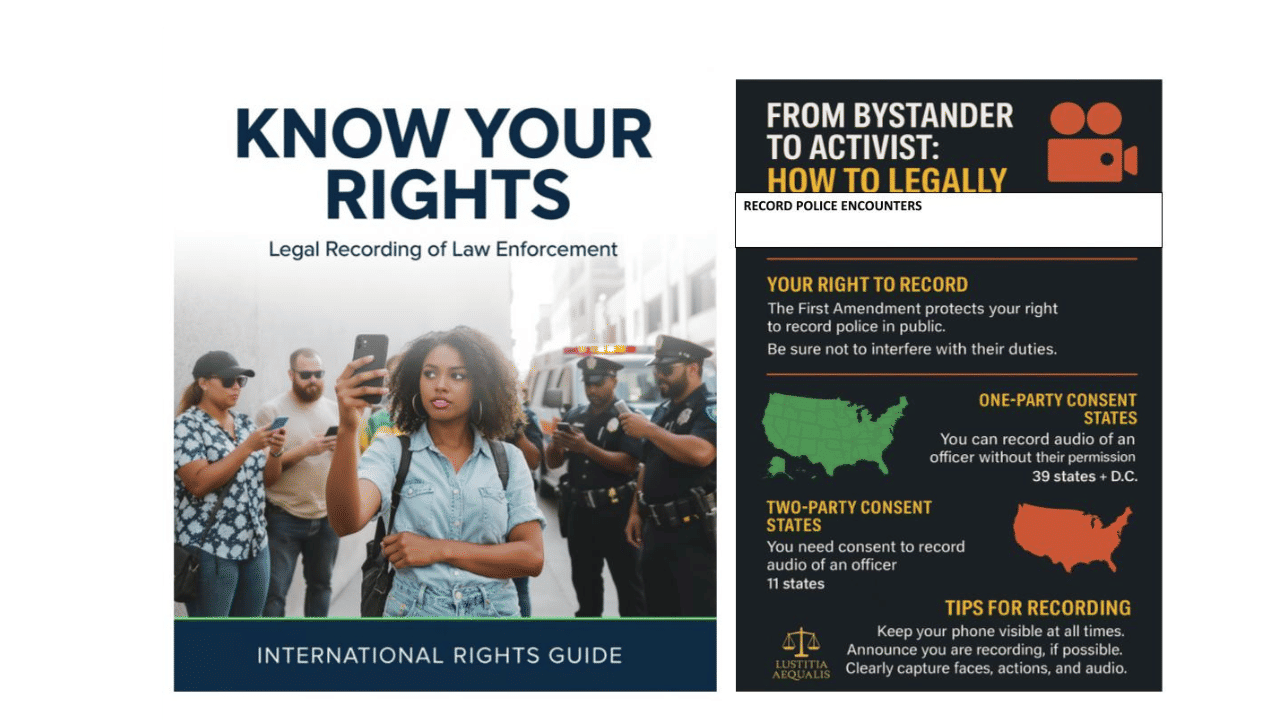
From Bystander to Defender: What to Record, Say, and Know When Justice Is on the Line
CEO’s Corner: Justice by Design- What a Tech-Based Movement Looks Like We are witnessing a revolution— and it’s not being televised. It’s being coded. It’s being recorded. It’s being organized by everyday people refusing to be silenced by systems that have historically treated them as disposable. At Lustitia Aequalis, we’re not just imagining a fairer world, we’re building the tools to demand it. We believe justice must be accessible, actionable, and accountable. That’s why we’re at the forefront of a civic tech movement reshaping what equality and empowerment looks like in real time for your civil and human rights with law enforcement and medical centers across the globe. Our focus is bold and unflinching: protecting your rights at the intersection of law enforcement and healthcare. 💡 When Injustice Shows Up in a Lab Coat or a Badge We refuse to accept that being sick or scared should make you a suspect. Too often, the systems designed to care, protect, and serve become the ones that criminalize us—especially if you’re Black, Brown, undocumented, poor, homeless, 0or struggling with mental health. Whether it’s a police stop gone wrong or a hospital visit that ends in handcuffs, we are fighting back with tools, knowledge, and truth. From our Witness app that helps people safely record encounters, to our rights literacy campaigns teaching communities what to say, what to record, and what their rights actually are, we’re changing the game. And in healthcare? We’re holding institutions accountable for neglect, coercion, and bias, especially when it comes to marginalized patients and informed consent. 🛠️ This Is What Justice Tech Looks Like Justice doesn’t just live in courtrooms. It lives in code, in policy, in everyday choices. Our approach is community-centered, data-informed, and driven by individuals who believe in fundamental care, genuine accountability, and rights that are not compromised behind closed doors. You don’t need a law degree to stand up for yourself. You need information. You need tools. You need a movement that’s with you, not just watching. That’s who we are. 🔥 The Future Is Now—And We Need You In It We’re calling on advocates, donors, healthcare workers, legal professionals, and everyday change-makers to join us. This is bigger than one app or one story. This is about rewriting the rules for how we treat each other and making sure justice finally shows up where it’s needed most. Let’s build a system where no one’s health or humanity can be weaponized against them. Because justice by design isn’t just our mission. It’s our blueprint. In Solidarity, Ashley T. Martin CEO, Lustitia Aequalis Table of Contents: From Bystander to Activist: How to Legally Record Police Encounters What to Say If You’re Stopped and You’re Undocumented: Real Talk, Real Rights Can a Hospital Call the Police on You? Know When You’re a Patient, Not a Suspect The Price of Noncompliance: What Happens When You Say No to a Search? Mental Health Crises Shouldn’t Lead to Jail Time: What Are Your Rights in a 911 Call? What Is Informed Consent—And How Often Is It Ignored in Black Healthcare? Dear Partners in Progress,
Dear Partners in Progress,
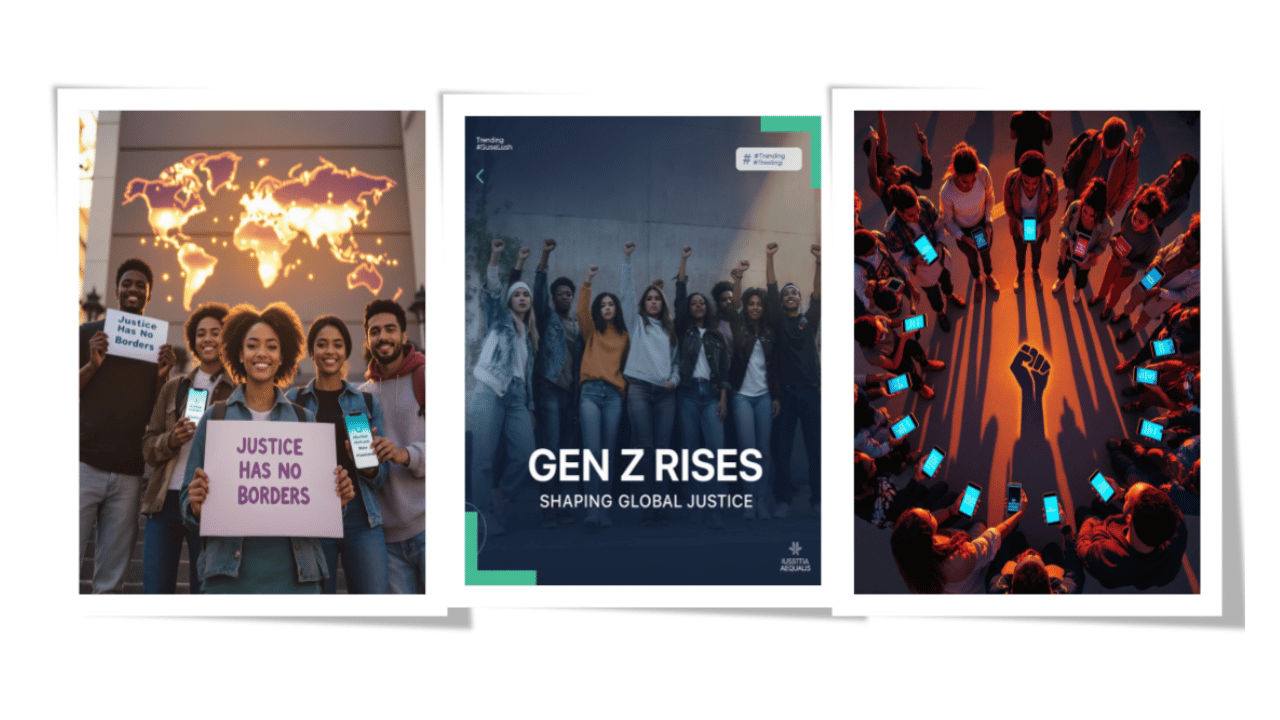
Justice Has No Borders: AI. Asylum. Abortion. Activism.
✉️ CEO’s Corner | Open Letter: When Algorithms Oppress, We Must Rise A Beacon of Resistance in the Age of Authoritarian AI By Ashley T. Martin, Founder & CEO, Lustitia Aequalis I never imagined that in our lifetime we would need to defend humanity, not just from injustice, but from the very technologies we were promised would set us free. Across borders, across systems, and across screens, artificial intelligence is being weaponized. Not for healthcare. Not for education. Not for freedom. But for control. For surveillance. For silencing the marginalized and unheard. This is not science fiction. This is now. In Xinjiang, China, AI surveillance systems built to “predict crime” are used to round up Uyghur Muslims, flagged not for what they’ve done, but for who they are. They are being detained in camps by hundreds of thousands. In Russia, India, and Iran, governments are using AI to automatically censor speech, remove protest-related content, and imprison truth-tellers—all without the accountability of due process. The machines don’t read constitutions. They execute commands. And right here in the United States, algorithms continue the legacy of systemic racism. From ShotSpotter’s false gunshot alerts in Black neighborhoods to predictive policing models built on biased data, AI is being used not to solve crimes, but to justify injustice. Let me be clear: AI is not neutral. These are not glitches. These are digital extensions of old power—colonial, carceral, patriarchal, and supremacist in design. And yet, I believe in another way forward. At Lustitia Aequalis, we are building tech that protects people, not persecutes them. We are preparing to launch our Witness App to the public on a secure, encrypted platform that allows you to record, timestamp, and store interactions with law enforcement, even in hostile jurisdictions. Your story is your right. And your phone, dash or body camera may be your only witness. We’re not just resisting AI abuse. We’re reclaiming our future from it. But I can’t do this alone. Neither can our team. This is your call to action: 💥 Advocate for AI bans in policing and surveillance. Support bills like the Facial Recognition Moratorium Act. 🧠 Educate your communities about how tech can reinforce bias. Algorithms are only as just as the people designing them. 🛡️ Support global watchdogs like Access Now, Algorithmic Justice League, and EFF, who are documenting abuses in real time. 🔐 Download our Witness App when released. Because if they’re watching, we should be recording. This is our moment to remind the world that no machine has more value than a human life. And that progress without justice is just entitled power—rebranded. In truth, in tech, and in solidarity, Ashley T. Martin Founder & CEO, Lustitia Aequalis 🕊️ Because liberty is not coded. It is declared in revolution. In this issue: Gen Z Is Leading the Global Civil Rights Movement—And the World Should Pay Attention France on Fire: Civil Liberties, Protest, and the Global Crackdown on Dissent When Hospitals Become Courtrooms: Using the Witness App to Protect Your Health and Freedom Border Violence and the Crisis of Asylum: Mexico, the U.S., and the World Dear Partners in Progress,
Dear Partners in Progress,
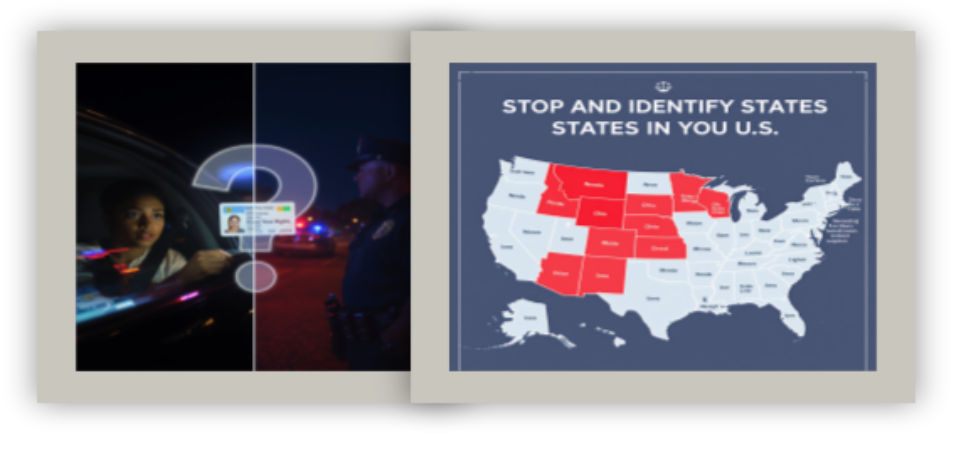
Relocation, Resistance, and Reform: A Global Human Rights Snapshot
CEO Corner: A Beacon of Hope: Mexico's Leadership in Human Rights Amidst Adversity Claudia Sheinbaum of the National Regeneration Movement (Morena) took office as President of Mexico for a six-year term on 1 October 2024, following her victory in the 2024 general election. In recent years, U.S.immigration policies have undergone significant shifts, resulting in increased enforcement and restrictions that have a profound impact on migrants. These changes have created a more dangerous environment for those seeking safety and opportunity, affecting families and communities on both sides of the border. As these policies evolve, the protection of human rights becomes increasingly critical. Migrants often face exploitation and discrimination, making it essential to uphold their dignity and safety. Mexico has emerged as a leader in advocating for human rights, implementing proactive measures to protect migrants and uphold their rights amid the complexities introduced by U.S. policies. Historically, Mexico has faced its own challenges, but recent reforms, including the establishment of the National Human Rights Commission and the General Law on Discrimination, demonstrate a commitment to fostering an inclusive society. Mexico's collaboration with international organizations further enhances its human rights framework, positioning the country as a key player in regional advocacy. The impact of U.S. immigration policies on Mexican citizens is profound, creating uncertainty and fear. In response, Mexico has strengthened its immigration framework, providing vital resources such as migrant shelters and legal assistance. Civil society plays a crucial role in this advocacy, mobilizing to support migrants and challenge harmful policies. Looking ahead, Mexico's leadership in Latin America will be vital in addressing the humanitarian challenges posed by migration. By fostering regional cooperation and engaging with international partners, Mexico can help cultivate a culture of respect for human rights throughout the region. Mexico's commitment to human rights advocacy is essential in navigating the complexities of U.S. immigration policies. As we champion the cause of human rights, let us recognize the importance of international collaboration in ensuring dignity and justice for all individuals, transcending borders and uplifting the most vulnerable among us. Call to Action: Embrace Mexico's Example in Global Human Rights Advocacy In light of Mexico's proactive stance on human rights amid U.S. immigration challenges, we urge countries worldwide to follow this inspiring example by not only adopting human rights policies but also translating them into meaningful actions. This includes strengthening legal frameworks to protect vulnerable populations, fostering international collaboration, empowering civil society organizations, promoting awareness and education, and actively combating discrimination. By uniting in our commitment to human rights, we can create a world where justice, equality, and compassion prevail, ensuring that every individual has the opportunity to live with dignity and security. The time for action is now—let us champion the cause of human rights globally. In this Issue: 1. Understanding Your Rights: Do I Have to Show ID During a Police Stop? 2. The Pros and Cons of Relocating for Better Human Rights 3. Global Perspectives: How Other Countries Are Addressing Immigration and Human Rights 4. Voices from the Community: Personal Stories of Immigration and Resilience
.png)
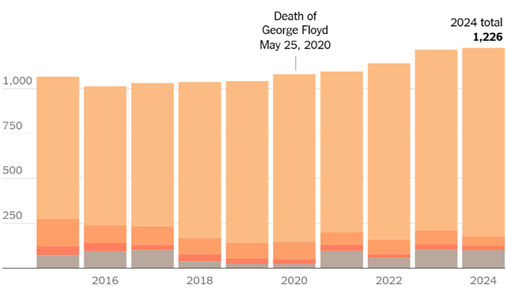
The Right to Remain Silent Is 59 Years Old: What’s Next for Justice?
CEO Address: The Global Challenge of Police Brutality Dear Partners in Progress, I’m vested in Lustitia Aequalis’ mission to protect and promote your civil and human rights everywhere you live, work, and travel. It's our mission to keep you alive when confronted with threatening situations, so we're working with our partners to offer a network of professionals who also care about your survival and ability to thrive wherever you go. I hope you’ll accept this invitation to learn about your rights, assert them, and take proactive measures to safeguard your life and those in your care. As we continue our journey toward justice, it’s imperative to recognize that police brutality is not confined to a single community or demographic. Our mission intentionally crosses borders because this issue reverberates across communities, state lines, and countries, impacting people in every corner of the globe. We listen when elected officials and their policies are limited by red tape. We believe that addressing law enforcement misconduct is an international human rights issue, and we stand with citizens and officials who are committed to building a properly trained police force that respects your dignity. We're here to foster trust in the systems that govern us, ensuring that you feel safe and protected when you most need it. The New York Times recently discussed the last five years since the murder of George Floyd in Minneapolis, reporting that “despite ... training [to]...hold officers more accountable, the number of people killed by the police continues to rise each year”. What have we accomplished in fighting police misconduct? Have we exhausted our resources to hold our officials accountable for the training that permits unwarranted behavior? In this issue, I challenge us to consider the direction ofthe Department of Justice and their decision to drop police reform agreements with Louisville, Kentucky, and Minneapolis (and other jurisdictions). Their decision marks a significant setback for our civil rights and accountability in law enforcement. These agreements were initially established to address systemic issues of brutality and promote greater transparency with community trust. With the DOJ's policy cancellation, we all face perpetuating cycles of violence and discrimination. The DOJ's move is combined with another setback - the discontinuation of the National Law Enforcement Accountability Database (NLEAD), which adds to the undermined efforts to hold law enforcement accountable for misconduct. Without the database, we’re unable to track crucial data about officer behavior and the complaints filed against them. This information is needed to trace patterns of abuse and inform leaders about necessary policy changes. Just think about what the removal of all that information means for us in our daily lives… We’re asking you to think about your safety and your community. We’re asking you for your input to contribute to a world where justice prevails, and your civil and human rights remain part of police training. Share your thoughts, and let’s have the conversation to protect our rights. We’re exercising our First Amendment right to call out the actions of the DOJ because the removal of these programs signals a troubling retreat from the commitment made to us. It is now up to citizens to ensure justice and protect civil rights. Keep raising your concerns about the future of equity in policing. We want to shout out America Daily Post and Lauren Black for reporting our work to bridge the gap. Your publications help us spread awareness- thank you.
.png)

Public safety starts with care. This story proves it.
CEO’s Welcome Dear Friends and Supporters, Welcome to the inaugural edition of our newsletter! You’re invited to join us as we work to protect and promote your civil and human rights, pushing for accountability across policing, court, and healthcare systems, both in the U.S. and abroad. At Lustitia Aequalis, our mission is to ensure that everyone understands their rights everywhere they live, work, and travel so that they are safe during interactions with law enforcement. We believe that knowledge is power, and through this newsletter, we aim to provide you with valuable insights, resources, and updates on our initiatives to save lives and build trust in systems that govern us. In each edition, you can expect to find: Stories that highlight our community efforts, Updates on local, national, and international policies, and Important information and resources about your rights so that you’re well aware of how to protect yourselves We also want to hear from you! Your experiences and feedback are crucial in shaping our work and driving meaningful changes that impact you, your families, your communities, and your networks for generations to come. We’re committed to protecting your legacies. As we move forward, know that we’re building a safer, well-connected, and more equitable quality of life where dignity and respect are the foundation. Thank you for your support, and I look forward to engaging with you through this newsletter, on social media, and every time we connect. Founder and CEO
.png)